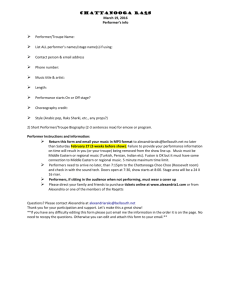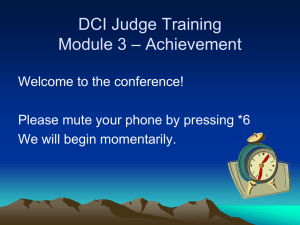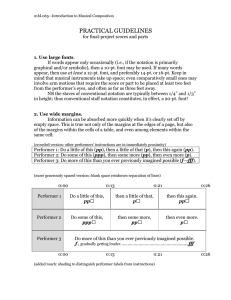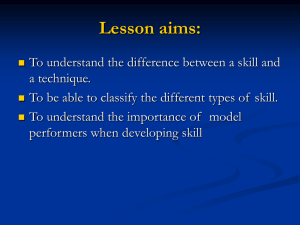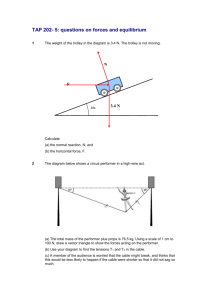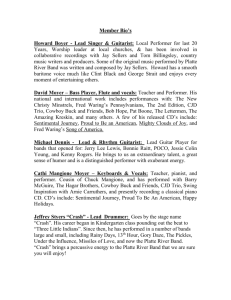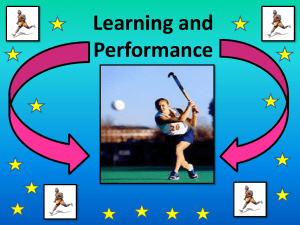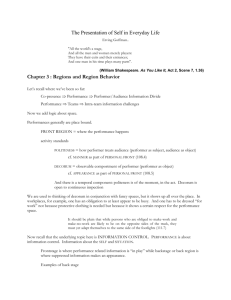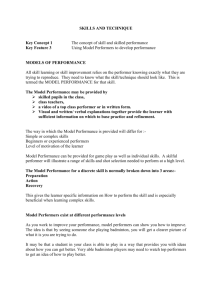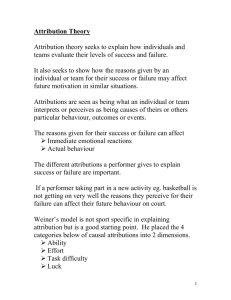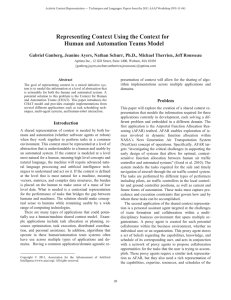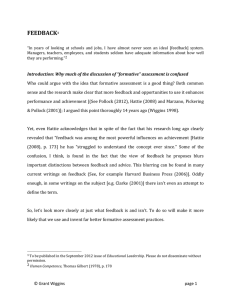Contextual Inquiry
advertisement
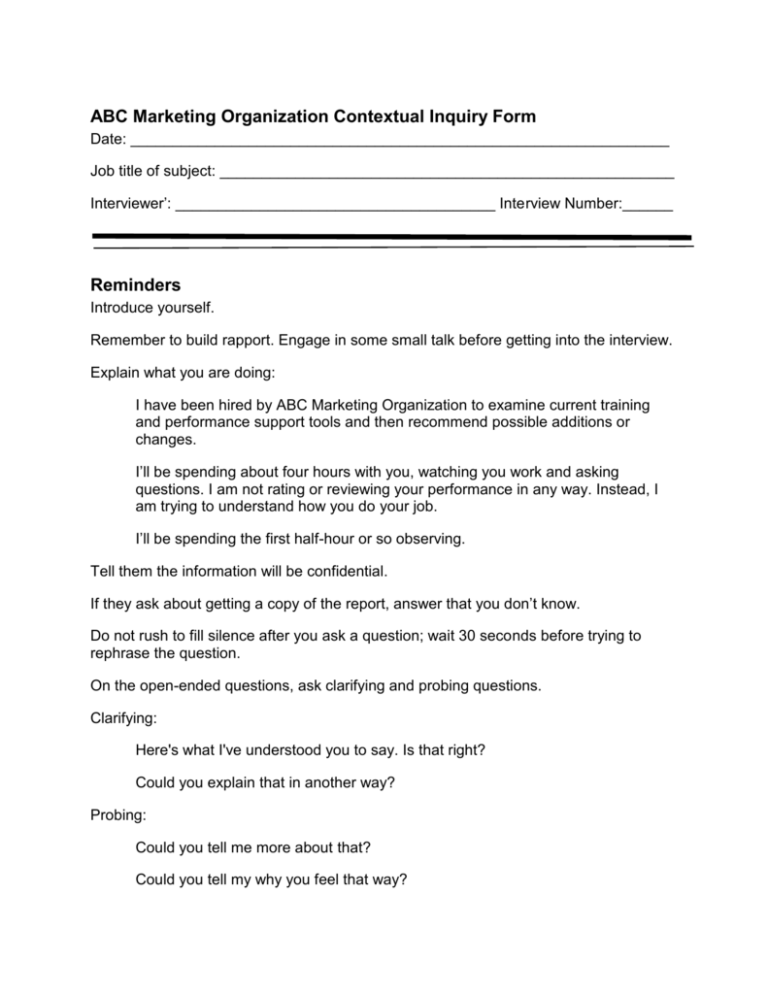
ABC Marketing Organization Contextual Inquiry Form Date: ________________________________________________________________ Job title of subject: ______________________________________________________ Interviewer’: ______________________________________ Interview Number:______ Reminders Introduce yourself. Remember to build rapport. Engage in some small talk before getting into the interview. Explain what you are doing: I have been hired by ABC Marketing Organization to examine current training and performance support tools and then recommend possible additions or changes. I’ll be spending about four hours with you, watching you work and asking questions. I am not rating or reviewing your performance in any way. Instead, I am trying to understand how you do your job. I’ll be spending the first half-hour or so observing. Tell them the information will be confidential. If they ask about getting a copy of the report, answer that you don’t know. Do not rush to fill silence after you ask a question; wait 30 seconds before trying to rephrase the question. On the open-ended questions, ask clarifying and probing questions. Clarifying: Here's what I've understood you to say. Is that right? Could you explain that in another way? Probing: Could you tell me more about that? Could you tell my why you feel that way? Contextual Observation (no interaction required) After you have taken time to introduce yourself, begin by documenting the work area. Workspace/Feedback/Tools/Reference/Organization Structure Describe briefly the overall working environment. Describe briefly where office equipment such as printers and copiers are in relation to the performer. Sketch and make notes about the work area layout, labeling (and, if helpful, describing) all of the following: (If any of the following are not available, note that as well) Computer Desk space Telephone File cabinets Hard copy reference materials—personal and formal job aids, et cetera—in the performers immediate work area Hard copy reference materials outside of the work area (Describe) Plaques and awards, certificates of achievement. Personal items Describe briefly how the performer places documents—job study designs, workarounds, job aids—as he or she works. After you have observed the work process, describe or sketch the performers location in relation to other group members, his or her mentor/coach/buddy, and supervisor. Circle the appropriate answer for all of the following: Is there a copy of the Organization Chart? Yes No Does the performer have a TO DO list he or she works from? Yes No Are there notes or other physical reminders of work process or job specifications visible in the work space? Yes No Training/Coaching Is there a list or brochure with training courses available visible? Yes No List the people the performer interacts with during the time you are observing When the analyst is working with a coach, briefly describe the following: Who initiates the contact, and how? What is the body position of the coach relative to the performer. What is the body language of the coach? What is the body language of the performer? Describe the verbal interaction, noting non-verbal cues such as tone of voice as well as verbal cues. Describe the performers behavior after the interaction, noting actions, verbal and non-verbal cues that may indicate inner emotional states. Tools and Work Process Make a list of all tools and systems used by the performer within his or her immediate workspace. Mark each time the performer uses a tool, and note how much time is involved. Fill in the task analysis forms that are part of this package. Make a list of all tools and systems used by the performer that are outside of his or her immediate workspace. Mark each time the performer uses a tool, and note for how long he or she uses it. Contextual Inquiry (interactive) During the course of the contextual interview, you will ask many specific questions to help you understand the work process. The following are questions that need to be answered for our final report to the client. Reference Tell me about the formal hard copy reference materials you use. If you have developed a personal reference system for yourself, tell me about that? Show me and tell me about all online systems and job aids that you use. Are there any cases you can handle without using formal or informal reference? If yes, describe them Describe the jobs and tasks that require you to use your formal and informal personal reference system. Describe the jobs and tasks that require you to ask for help from a coworker or your coach/mentor/buddy. Who do you call on at those times. Describe the jobs and tasks (if any) that require you to seek assistance from a help desk or other source of information not immediately available. If there is no such help desk, what are jobs and tasks you encounter that make you wish there were? What tricks do you use to help you recall job related information? Tools Show me and tell me about all the systems you use. Let me know specifically which ones are new—6 months old or less. Of the recent tools that have been added, which is the most useful—and why? Of the recent tools that have been which, which is not useful—and why? Training/coaching Describe for me how you learned the job. Show me the systems you learned and tell me about how you learned them? What was the most difficult part of the job to learn? Why? What helps you learn the job? How? What hinders you from learning the job? Why? If you could, how would you change the way you learn the job? What training would you like to receive? Work Process When you arrive, what are the first things that you do? What are the most common difficulties you face? What is the most difficult task you do? What task is the most frustrating? What task do you enjoy the most? What part of the job takes the most time—and why? Show me how you work with a job study design that needs to be changed? What helps you do the job—and how? (30) What hinders you from doing the job—and how? How do you know when you’ve done a really good job? What do “expert performers” know and do that novice performers do not?
